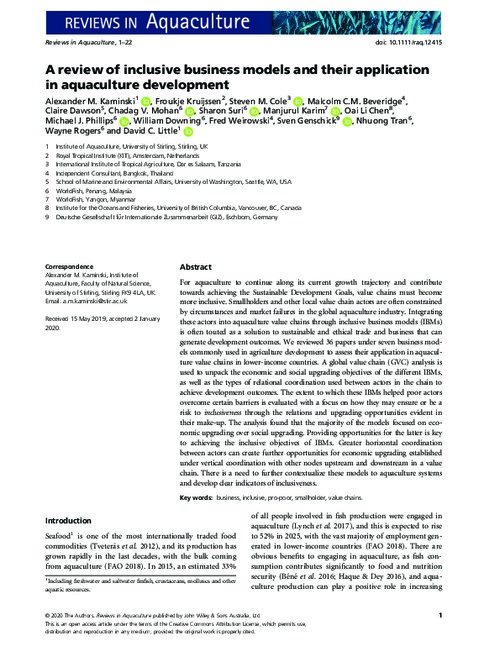A review of inclusive business models and their application in aquaculture development
Abstract
For aquaculture to continue along its current growth trajectory and contribute towards achieving the Sustainable Development Goals, value chains must become more inclusive. Smallholders and other local value chain actors are often constrained by circumstances and market failures in the global aquaculture industry. Integrating these actors into aquaculture value chains through inclusive business models (IBMs) is often touted as a solution to sustainable and ethical trade and business that can generate development outcomes. We reviewed 36 papers under seven business models commonly used in agriculture development to assess their application in aquaculture value chains in lower-income countries. A global value chain (GVC) analysis is used to unpack the economic and social upgrading objectives of the different IBMs, as well as the types of relational coordination used between actors in the chain to achieve development outcomes. The extent to which these IBMs helped poor actors overcome certain barriers is evaluated with a focus on how they may ensure or be a risk to inclusiveness through the relations and upgrading opportunities evident in their make-up. The analysis found that the majority of the models focused on economic upgrading over social upgrading. Providing opportunities for the latter is key to achieving the inclusive objectives of IBMs. Greater horizontal coordination between actors can create further opportunities for economic upgrading established under vertical coordination with other nodes upstream and downstream in a value chain. There is a need to further contextualize these models to aquaculture systems and develop clear indicators of inclusiveness

